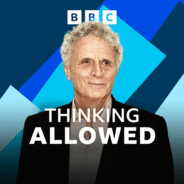Laurie Taylor lifts the lid on a sector of the economy associated with wealth, innovation & genius. Mark Graham, Professor of Internet Geography at the Oxford Internet Institute, uncovers the hidden human labour powering AI. His study, based on hundreds of interviews and thousands of hours of fieldwork, is the first to tell the stories of this army of underpaid and exploited workers. Beneath the promise of a frictionless technology that will bring riches to humanity, the interviews he has conducted reveal a grimmer reality involving a precarious global workforce of millions labouring under often appalling conditions. Also, Paula Bialski, Associate Professor for Digital Sociology at the University of St. Gallen in St. Gallen, Switzerland, discusses her research with software developers at a non-flashy, run-of-the-mill tech company. Beyond the awesome images of the Gods of Silicone Valley, she finds that technology breaks due to human-related issues and staff are often engaged in patch up and repair, rather than dreaming up the next killer app. Producer: Jayne Egerton
Folgen von Thinking Allowed
567 Folgen
-
Folge vom 05.11.2024Tech Workers
-
Folge vom 29.10.2024Food SystemsLaurie Taylor talks to Ann Murcott, Honorary Professorial Research Associate, at SOAS, University of London about the origins and development of food packaging, from tin cans and glass jars to bottles and plastic trays. How central is packaging to global food systems and should we be concerned about wasteful packaging ? Also, Anastacia Marx de Salcedo, offers a spirited defence of processed food from a feminist, economic, and public-health perspective.Producer: Jayne Egerton
-
Folge vom 22.10.2024Meaning of WorkLaurie Taylor talks to Jana Costas, Chair of People, Work & Management at the European University Viadrina, Frankfurt (Oder), Germany about the unseen cleaners beyond the shiny surface of Potsdamer Platz, a designer micro-city within Berlin's city centre. Behind the scenes they pick up cigarette butts from pavements, scrape chewing gum from marble floors and scrub public toilets, long before white-collar workers, consumers and tourists enter the complex. How do they feel about work which some would stigmatise as degrading? How do they salvage a sense of personal dignity? Also, Katie Bailey, Professor of Work and Employment at Kings College, London unpacks her analysis of accounts related by nurses, creative artists and lawyers as to why they find their work meaningful. Producer: Jayne Egerton











